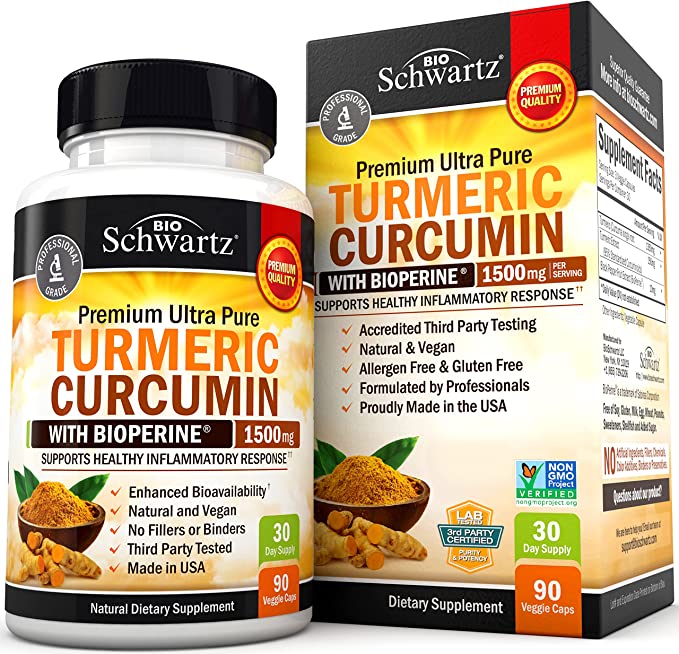Best Supplements for Vitiligo Treatment

What are the best supplements for Vitiligo treatment?
Vitiligo is a difficult condition to treat, and there is no one-size-fits-all solution. However, some supplements may help to improve the appearance of vitiligo and promote repigmentation.
The best supplements for vitiligo treatment include:
- Niacinamide: Niacinamide is a form of vitamin B3 that can help to improve the appearance of vitiligo by promoting repigmentation. It is safe and well-tolerated, making it an ideal treatment option for many people with vitiligo.
- Pseudoalbacore oil: Pseudoalbacore oil is rich in omega-3 fatty acids, which are known to be beneficial for skin health. Omega-3 fatty acids can help to improve the appearance of vitiligo and promote repigmentation.
- Ginkgo biloba: Ginkgo biloba is an herbal supplement that has been shown to improve blood circulation. This can be beneficial for people with vitiligo as poor circulation can contribute to the development of the condition.
- Vitamin D: Vitamin D is essential for healthy skin and can help to improve the appearance of vitiligo. It is important to ensure that you get enough vitamin D through exposure to sunlight or by taking a supplement.
- Bromelain: Bromelain is a natural enzyme that can help to reduce inflammation. This can be beneficial to treat the side effects of Vitiligo.
The effectiveness of Vitiligo supplements
There is still much unknown about the potential effectiveness of supplements for vitiligo. Many factors, such as the type and severity of vitiligo, can affect how well a supplement may work. Additionally, there is limited research on most supplements for vitiligo.
Some people with vitiligo have found success in using oral or topical vitamin B12. Vitamin B12 is thought to help with skin pigment production. There is some evidence from small studies that vitamin B12 may be effective in treating vitiligo. However, more research is needed to confirm these findings.
Other vitamins and minerals that have been studied for their potential role in treating vitiligo include vitamin D, folic acid, copper, and zinc. So far, there is not enough evidence to recommend any of these nutrients as a treatment for vitiligo.
Some people with vitiligo also use alternative therapies, such as traditional Chinese medicine or Ayurvedic medicine. There is little scientific evidence to support the use of these therapies for treating vitiligo. However, some people find them helpful in managing their condition.
Where you can buy supplements?
If you’re considering trying out vitiligo supplements to help with your condition, you may be wondering where you can purchase them. Luckily, there are a few different places you can buy supplements that claim to improve vitiligo:
-Health food stores: Many health food stores sell natural vitiligo supplements that can be taken orally or applied topically.
-Online retailers: There are a number of online retailers that sell vitiligo supplements, so you can shop around to find the best deal. Be sure to do your research before purchasing anything online, and make sure the seller is reputable.
-Vitiligo clinics: Some vitiligo clinics offer supplements as part of their treatment program. This option may be more expensive, but it could also be more effective since the supplement would be tailored to your specific needs.
Alternatives to Vitiligo supplementation
There are a few alternatives to supplementation that may be effective in treating vitiligo. These include:
- Light therapy: This involves exposing the skin to ultraviolet (UV) light on a regular basis. UV light can help to stop the progression of vitiligo and may even lead to repigmentation in some cases.
- Topical treatments: There are a number of topical treatments that have been shown to be effective in treating vitiligo. These include corticosteroids, calcineurin inhibitors, and photodynamic therapy.
- Surgery: In some cases, surgery may be an option for treating vitiligo. This includes skin grafting, which involves taking healthy skin from another area of the body and surgically attaching it to the affected area.
- Lifestyle changes: Making certain lifestyle changes can also help to treat vitiligo and prevent its progression. These include avoiding triggers such as sun exposure, stress, and chemicals; eating a healthy diet; and getting enough rest and exercise.
Should I change my diet or take supplements for Vitiligo?
If you are wondering whether you should change your diet or take supplements for vitiligo, the answer may depend on the severity of your condition. If you have a mild case of vitiligo, you may be able to improve your symptoms with diet and lifestyle changes alone. However, if you have a more severe case, you may need to take vitamin supplements in addition to making dietary changes.
Some people with vitiligo find that eliminating certain foods from their diet helps to improve their symptoms. Foods that are high in oxalates, such as spinach and kale, can worsen vitiligo and should be avoided. Other trigger foods include citrus fruits, tomatoes, wheat, and dairy products. You may also want to avoid food additives and preservatives.
In addition to changing your diet, there are other lifestyle changes you can make to help improve your vitiligo. Getting regular exercise and managing stress can help to improve your overall health and well-being. Exposing your skin to sunlight can also help to stimulate the production of pigment.
If you have a more severe case of vitiligo, you may need to take supplements in addition to making dietary and lifestyle changes. The most common supplement used for vitiligo is psoralen. Psoralen helps to increase the production of pigment in the skin. It is usually taken as a pill or applied topically before exposure to sunlight.
Common Vitamins for Vitiligo
There are a few different vitamins and supplements that are commonly recommended for people with vitiligo. These include vitamin C, vitamin D, zinc, and copper.
Vitamin C is an antioxidant that can help to protect the skin from damage. It is also thought to boost the immune system, which may help to improve the chances of repigmentation.
Vitamin D is important for healthy skin and bones. It can be obtained from sunlight or from certain foods such as fatty fish, eggs, and fortified milk. Research suggests that vitamin D may help to reduce the risk of developing vitiligo and may also promote repigmentation.
Zinc is an essential mineral that is important for many bodily functions including immunity, wound healing, and cell growth. Some studies have shown that zinc supplementation can improve repigmentation in people with vitiligo.
Copper is another essential mineral with a variety of functions in the body including helping to make red blood cells and producing collagen. Copper deficiency has been linked to vitiligo in some studies and copper supplementation has been shown to improve repigmentation in some people with vitiligo.
Vitamin B12 and Folic Acid for Vitiligo treatment
Vitamin B12 and folic acid are two nutrients that have been studied for their potential role in vitiligo treatment. While the evidence is still preliminary, there is some evidence to suggest that these nutrients may be helpful in treating vitiligo.
Vitamin B12 is a water-soluble vitamin that plays a role in many important biological processes, including DNA synthesis and red blood cell formation. Folic acid is a water-soluble vitamin that is involved in DNA synthesis and methylation.
A few small studies have found that vitamin B12 and folic acid supplementation may improve repigmentation in people with vitiligo. In one study, 26% of participants who received vitamin B12 and folic acid supplements experienced partial repigmentation after 6 months of treatment, compared to 9% of those who did not receive supplements.
Another study found that 50% of participants who received vitamin B12 and folic acid supplements experienced an improvement in their vitiligo after 6 months of treatment, compared to 14% of those who did not receive supplements.
How much vitamin B12 should I take for vitiligo?
The evidence suggests that vitamin B12 and folic acid supplementation may be beneficial for people with vitiligo, but more research is needed to confirm these findings. If you are considering taking supplements for vitiligo treatment, it is important to speak with your doctor first to ensure they are safe for you.
Multivitamin tablets for Vitiligo
Multivitamin tablets are a popular supplement for vitiligo. There are many different brands and formulations of multivitamin tablets, so it is important to read the label carefully to find one that is right for you. Multivitamin tablets can help to improve the overall health of your skin by providing essential vitamins and minerals. They can also help to reduce the appearance of vitiligo by providing pigment-boosting nutrients.
If you are considering taking multivitamin tablets for vitiligo, be sure to speak with your doctor first to ensure they are safe for you to take.
Herb Supplements for Vitiligo
Different herb supplements have been traditionally used for vitiligo. Some of the more common ones include:-
Turmeric: Turmeric is a common spice that has been used for centuries in Indian and Chinese medicine. It is thought to be a powerful anti-inflammatory agent and may help to reduce the inflammation associated with vitiligo.
Ginkgo Biloba: Ginkgo biloba is an herb that is native to China and Japan. It is often used in traditional Chinese medicine as a way to improve circulation and increase blood flow. This increased blood flow may help to reduce the appearance of vitiligo by increasing the amount of pigment in the skin.
Green Tea: Green tea is another popular herbal remedy that has many health benefits. One of these benefits is its ability to improve circulation and increase blood flow. This increased blood flow can help to reduce the appearance of vitiligo by bringing more pigment to the affected areas of skin.
Red Clover: Red clover is an herb that has been used traditionally for centuries as a way to treat skin problems. It is thought to be a very effective detoxifier and can help to remove toxins from the body that may be contributing to the development of vitiligo.
Other options for Vitiligo treatment
There are several other options for Vitiligo treatment. These include Ayurvedic treatment, natural remedies, Woods’ Lamp etc. Certain vitamins, and foods like black pepper, are also very helpful in Vitiligo treatment. As always, it is recommended to get a professional opinion before starting a treatment process.











